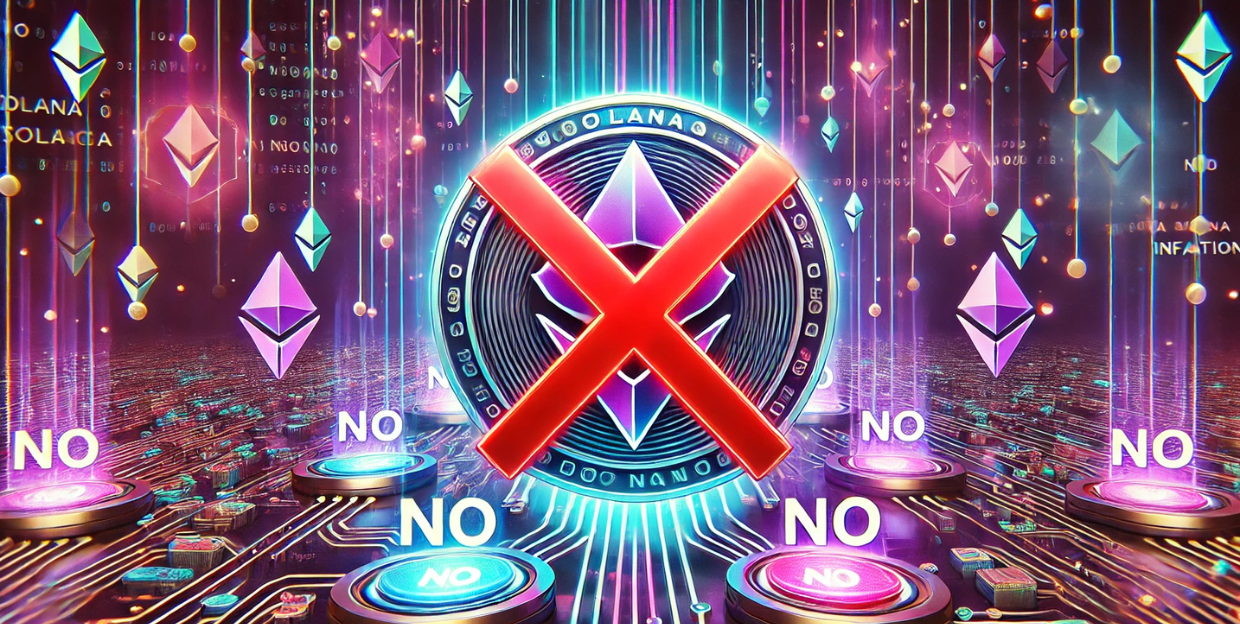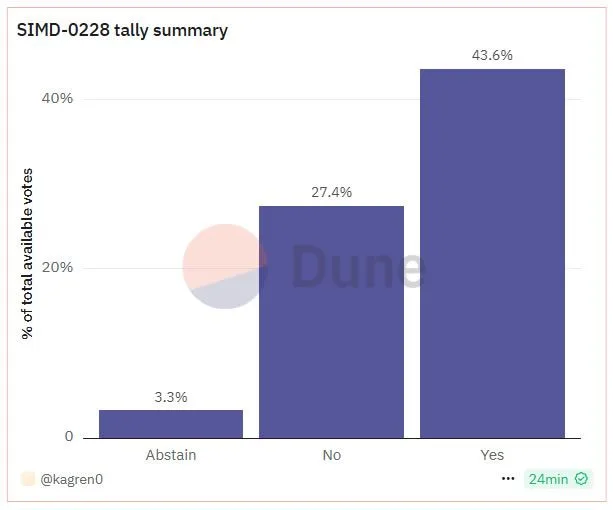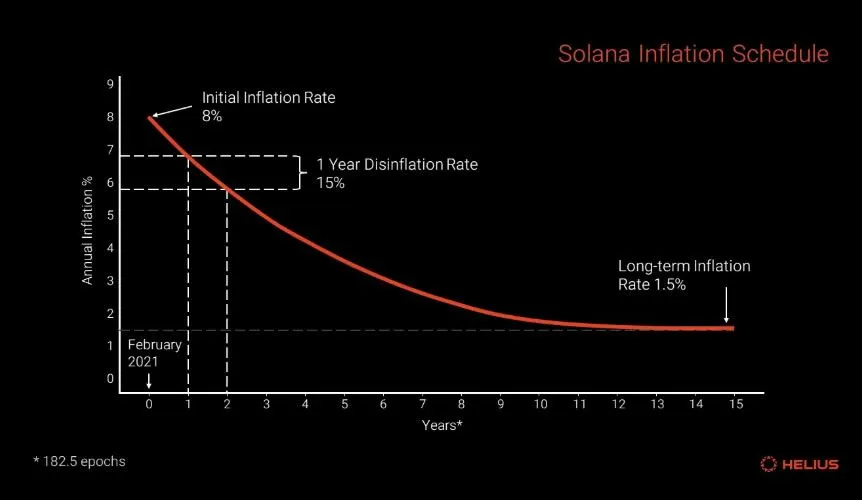
In a significant development for the Solana ecosystem, a proposal aimed at reducing inflation by 80% has failed to pass a community vote. The proposal, known as SIMD-228, sought to shift Solana’s inflation model from a fixed rate to a dynamic system dependent on validator activity. Despite not passing, the vote marked a major milestone in Solana’s governance process, with a record number of participants and validators involved.
What Was Suggested To Change
The proposed system, SIMD-228, aimed to replace Solana’s current fixed inflation rate with a dynamic mechanism. Currently, Solana’s inflation starts at 8% and decreases by 15% annually until it reaches 1.5%. The new system would have automatically adjusted inflation based on validator activity, potentially reducing the volume of new tokens issued by up to 80%.
This change was intended to stabilize the network and limit unnecessary token issuance. However, it also had potential drawbacks, such as making it more challenging for small validators to operate and introducing complexity that could lead to instability with abrupt changes in staking.

How Did Solana React?
The vote on SIMD-228 saw 43.6% of participants support the proposal, while 27.4% opposed it, and 3.3% abstained. Although it did not meet the required 66.67% approval threshold, achieving only 61.4%, the vote was hailed as a success for Solana’s decentralized governance.
Tushar Jain, co-founder of Multicoin Capital, noted that this was the largest vote in crypto history, both in terms of participants and market capitalization of voters. He emphasized that Solana passed a significant scalability test, not technically but socially, despite the wide range of opinions.
Market Impact
The price of SOL remained relatively stable, dropping only 1.5% overnight to $125. However, over the past two months, SOL has experienced a more significant decline of nearly 60%, reflecting broader market trends rather than the inflation proposal’s outcome.

Broader Market Context
The recent market downturn is not isolated to Solana. The Nasdaq Composite experienced its worst daily performance since 2022, with a 4% drop on March 10. This broader market volatility has been attributed to various factors, including investor reactions to economic policies and corporate performance.
Future Outlook
While the proposal did not pass, it highlights Solana’s commitment to community-driven governance. The network will continue to operate under its current inflation model, which gradually decreases over time. As the cryptocurrency market continues to evolve, Solana’s governance process will remain crucial in shaping its future developments.
Conclusion
The rejection of the inflation reduction proposal marks an important moment for Solana, showcasing the strength of its decentralized governance system. Despite the outcome, the vote demonstrates Solana’s ability to engage its community in significant decisions, setting a precedent for future governance processes in the cryptocurrency space.

